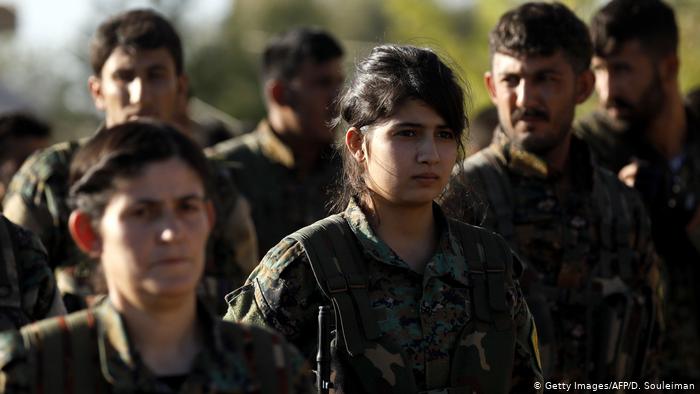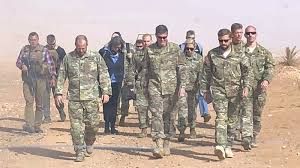LISTSOur biweekly lists lay out notable issues in the news and tell you what you can do about them.
|
SUBSCRIBE TO EMAIL UPDATES:
|
|
Hey Teen Resisters! With all the impeachment stuff that's going on, it's really easy to feel overwhelmed (we know that we do). And that makes sense—we're at a moment in history right now that it unprecedented and exceptional; it will likely be instrumental in shaping the political landscape of America for decades to come. Regardless of how important it is to stay up to date on all the impeachment stuff, though, it's also important to not let all the other key happenings get lost. Here are some items that might have flown under your radar over the past couple of weeks--read, digest, and act at your own pace! Sending large amounts of love & good vibes, and happy activisting :)) xx, TR Note: In addition to content from our staff writers (listed here), this list includes writing from Ruby Goodman. Before you dive in, we want to update you on a few quick things we want to update you on: 1) The October 11th CNN LGBTQ Town Hall for 2020 Democratic presidential candidates, which came in the wake of the October 8th arguments for one of the most important LGBTQ+ rights Supreme Court cases in modern history (concerning workplace discrimination). Read about the town hall here and the case here. 2) The governor's race in Kentucky--if you're looking for a quick, simple, and impactful action to take, this topic is for you. The November 8th Kentucky gubernatorial election features a matchup which is--likely surprisingly to many of you, since Kentucky tends to be a red state--currently even, according to polls. Current AG Andy Beshear is running to unseat incumbent Gov. Bevin--read more about the race here, and phonebank here: www.mobilize.us/kydems/event/108304/ what went down
As they’ve struggled for citizenship in the Middle East, they have faced violence and oppression from all directions. In the past, the Kurds have created resistance parties to challenge Turkey in an effort to establish their own state while also trying to avoid conflict with the powerful Syrian regime. Because of this threat, the Turks have viewed the Kurds as a terror group and treated them as such, creating a major rift between the two groups. So, where does the U.S. come in? In the early 2010s, the radical Islamic terror group ISIS threatened the safety of the Kurds as it sought to take over territory in which the Kurds had been living. While Turkey looked the other way, U.S. and Kurdish forces teamed up to try to take down ISIS. The Kurdish troops led much of the decade’s fighting against ISIS, and were responsible for a lot of its success. They also established a cooperative relationship with the United States, regardless of the fact that the U.S. was (and is) an official ally of Turkey through NATO, causing the U.S. to be essentially caught between two hostile groups. Because of the middle ground position they were in, the U.S. decided to insert troops in the hot zones of Syria as a buffer between the Turks and the Kurds, consequently playing a major part in cooling the simmering conflict between these two groups. In addition to preventing conflict between Turkey and the Kurds, U.S. troops also stopped Bashar Al-Assad, the president of Syria, from seizing control over Northern Syria and the Kurds. Beyond that, U.S. forces in Syria helped subdue ISIS in the area, and secured Isis prisoners in Kurdish possession.
All in all, the last couple weeks have been filled with explosive violence in Northern Syria; the Kurds are in more danger of being destroyed than ever, and Russia, Assad, and ISIS all have gained global power. Vice President Mike Pence and President Erdoğan of Turkey agreed to a five-day ceasefire in Syria, followed by Trump lifting sanctions on Turkey, claiming that the ceasefire would be permanent. However, given the global chaos of the past couple of weeks, it would be very surprising if it held. Whatever happens, this abrupt U.S. foreign policy move will have repercussions in Syria for years to come.
What can you do?
Delaware has previously passed laws mandating that both the Department of Corrections and the Department of Services for Children, Youth, and Their Families offer free pads and tampons. Several other states, including California, Illinois, New York, and New Hampshire, have also passed laws requiring schools to provide period products. Rep. Longhurst and Sen. Lockman hope to have the bill drafted and proposed by the end of 2019.
What You Can Do:
0 Comments
Leave a Reply. |
UPdatesThese lists include featured organizations, scripts, numbers, news updates and inspirational activists. Archives
January 2022
Categories |
About |
Content |
|




 RSS Feed
RSS Feed
